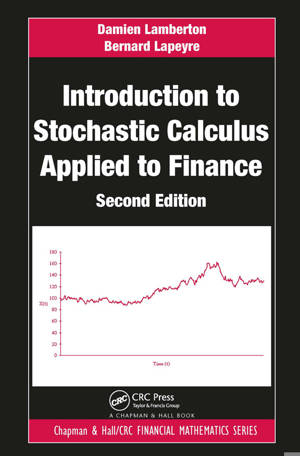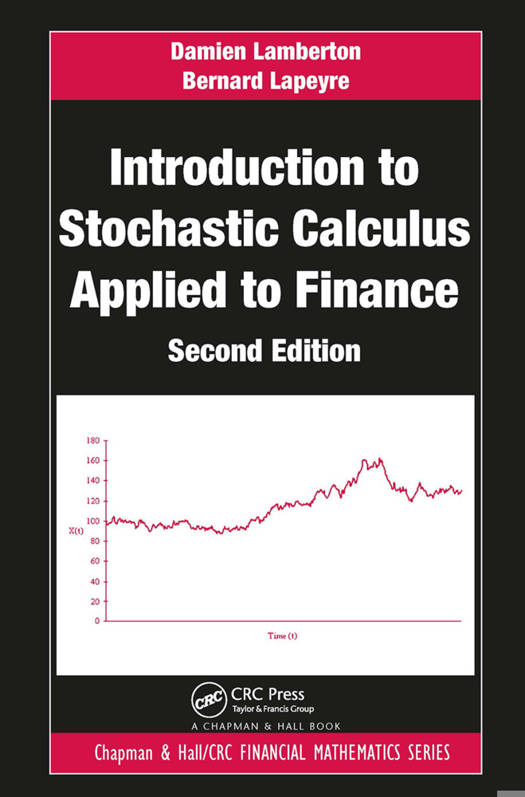
- Afhalen na 1 uur in een winkel met voorraad
- Gratis thuislevering in België vanaf € 30
- Ruim aanbod met 7 miljoen producten
- Afhalen na 1 uur in een winkel met voorraad
- Gratis thuislevering in België vanaf € 30
- Ruim aanbod met 7 miljoen producten
Zoeken
€ 59,45
+ 118 punten
Uitvoering
Omschrijving
Since the publication of the first edition of this book, the area of mathematical finance has grown rapidly, with financial analysts using more sophisticated mathematical concepts, such as stochastic integration, to describe the behavior of markets and to derive computing methods. Maintaining the lucid style of its popular predecessor, Introduction to Stochastic Calculus Applied to Finance, Second Edition incorporates some of these new techniques and concepts to provide an accessible, up-to-date initiation to the field.
New to the Second EditionSpecificaties
Betrokkenen
- Auteur(s):
- Uitgeverij:
Inhoud
- Aantal bladzijden:
- 254
- Taal:
- Engels
- Reeks:
Eigenschappen
- Productcode (EAN):
- 9781032477817
- Verschijningsdatum:
- 21/01/2023
- Uitvoering:
- Paperback
- Formaat:
- Trade paperback (VS)
- Afmetingen:
- 156 mm x 233 mm
- Gewicht:
- 479 g

Alleen bij Standaard Boekhandel
+ 118 punten op je klantenkaart van Standaard Boekhandel
Beoordelingen
We publiceren alleen reviews die voldoen aan de voorwaarden voor reviews. Bekijk onze voorwaarden voor reviews.











